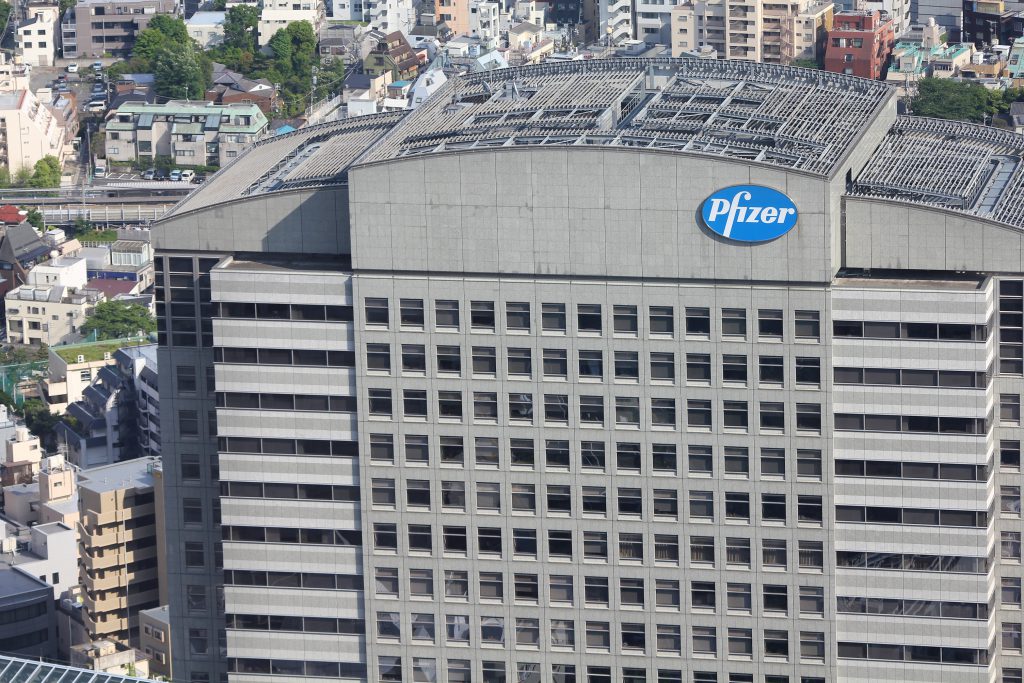Yale University’s decades-long quest to transform New Haven into an innovation center was catapulted into the spotlight this week as Pfizer announced its acquisition of Biohaven Pharmaceuticals for approximately $11.6 billion. Biohaven’s leaders state in the companies’ joint press release, “Pfizer’s capabilities will accelerate our mission to deliver our migraine medicines to even more patients, while the new R&D company is well positioned to bring value to patients and shareholders by focusing on our innovative pipeline for neurological and other disorders.”
Biohaven was founded just nine years ago by Vlad Coric, MD, Associate Clinical Professor of Psychiatry at Yale School of Medicine, and expanded rapidly as the company successfully commercialized Dr. Coric’s research at the university. Seeking to “fill what its founders saw as a void in neurology research in the pharmaceutical industry,” the company developed treatments for migraines, Alzheimer’s, and other neurological conditions. The company went public in 2017 – just 4 years after its founding – and expanded to employ over 600 people at their New Haven offices.
Universities have long sought to mimic Stanford’s role in creating Silicon Valley in the 1950s. While California’s Bay Area then trailed New York and Boston in commercial innovation, a combination of happenstance and Stanford University’s talent pipeline helped to draw in the right mix of people, basic research, businesses, and capital that revolutionized technology. And ever since, other regions have attempted to replicate this triumph – with varying degrees of success. For every Boston “Genetown” or North Carolina “Research Triangle” there are many other regions that have struggled.
And New Haven was long counted among those disappointments. Yale’s Office of Cooperative Research was formed in 1982 to helps Yale faculty commercialize their research, with a particular focus on bringing technology to the economically depressed New Haven area. Even as late as the dot com boom of the late 1990s, Yale struggled to create a handful of companies per year.
Historically, 80% of Yale’s patent production is in biotechnology, with the bulk of its innovation dollars funneled into the sector. But although Connecticut was home to Pfizer’s global R&D headquarters and Boehringer Ingelheim’s U.S headquarter, and the New Haven area housed Bayer’s global oncology facility and a Bristol-Myers Squibb research unit, Yale had trouble leveraging big pharma proximity to create biotech startups.
But the region’s biotech began to boom during the 2010s: nearly 50 biotech companies were created in New Haven over the past decade. By 2018, startups based on Yale intellectual property raised over $1 billion in venture capital funding and $11 billion in public markets. Now Nasdaq-traded companies such as Arvinas and Alexion, both nurtured by Yale, command headlines alongside many other success stories seeking to bring innovative treatments to market.
Source: https://www.baybridgebio.com/blog/biotech-bust-to-boom.html
And now Biohaven serves as another crowning achievement – and a sign of hope for other regions seeking to transform their local economies. Southern Connecticut has finally been able to pull together the ingredients that have created other innovation hubs: research and development, talent, financing, and an ecosystem of companies that fosters the rest. Biohaven’s CEO has touted the area as “an ideal location for Biohaven given its proximity to Yale and highly skilled pharmaceutical talent that sits in the geographic corridor between New York and Boston.”
According to Matterhorn’s M&A database, which harnesses both AI and attorneys to digest the granular deal points of publicly announced transactions, Biohaven was advised by law firm Sullivan & Cromwell LLP and financial adviser Centerview Partners LLC. Pfizer was advised by Ropes and Gray and JP Morgan Chase.
